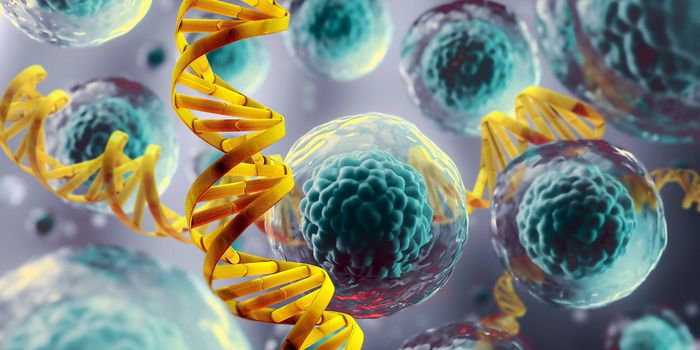How Spiders May Open a Path to IBS Treatment
Irritable bowel syndrome (IBS) is term that describes a gut disorder that causes abdominal pain, cramping, diarrhea or constipation, and mucus in the stool. The causes are unclear, though for some people it may involve hormones, stress, or food intake. There are no reliable tests that definitively diagnose it. While some patients can manage the problem with diet or lifestyle changes there are no reliable treatments for IBS.
Reporting in the journal Pain, scientists have now found that one of the world's largest spiders produces a venom that may help IBS patients. After screening venom from 28 arachnids, the researchers determined that the venom produced by the Venezuelan Pinkfoot Goliath tarantula was the most promising candidate for an IBS pain blocker.
"All pains are complex but gut pain is particularly challenging to treat and affects around 20 percent of the world's population," said the leader of the research team, Professor Richard Lewis from the University of Queensland's Institute for Molecular Bioscience
"Current drugs are failing to produce effective pain relief in many patients before side effects limit the dose that can be administered."
Study collaborator Professor Stuart Brierley of Flinders University said that disorders that impact the bladder and gastrointestinal system cause chronic pain that affects the internal organs - visceral pain.
"Internal organs have a complex network of sensory nerves that have a wide array of voltage-gated ion channels and receptors to detect stimuli," said Brierley. "The hypersensitivity of these nerves in disease often contributes to the development of pain."
Some ion channels that sit in the cell membrane are controlled by voltage; they respond to changes in ion concentration, or charge. When they become dysfunctional, they may cause chronic pain. Some venoms contain small proteins or peptides that can interfere with the opening of voltage-gated ion channels.
"Unfortunately these peptides aren't completely selective for pain targets," he said. "Our goal was to find more specialized pain blockers that are potent and target pain sodium channels for chronic visceral pain, but not those that are active in the heart and other channels."
Two peptides from the tarantula venom were found to be best at inhibiting two ion channels that play a significant role in pain. One of the two was especially good at soothing the sensory nerves in the bladder and colon and was almost able to completely stop chronic visceral pain in an IBS model.
"We now have a really strong understanding of the structure and function of these spider venom peptides," Lewis said. "The highly selective ones have potential as treatments for pain, while others are useful as new research tools to allow us to understand the underlying drivers of pain in different diseases."
Sources: Science Daily via University of Queensland, Pain








